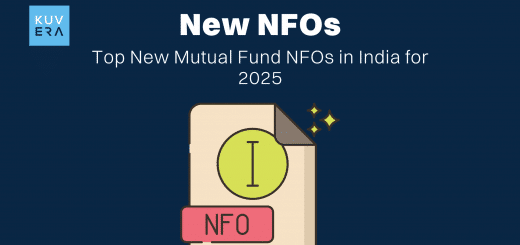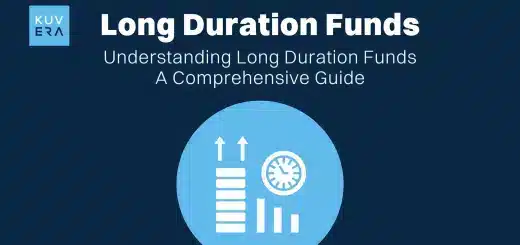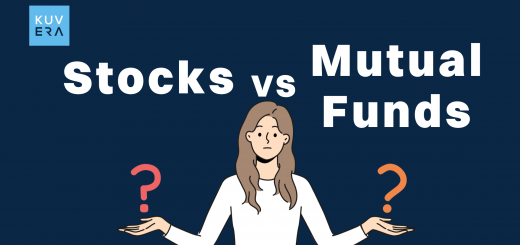So, you have already explored the top index fund names or even the top index funds in India. And now you are wondering if you need a Demat account to invest in index funds. Ta-da! Here’s a surprise. Did you know you can invest in Index Funds without a Demat account? Let’s find out how.
If you’re considering investing in index funds or any other form of investing, you probably have heard that you need a Demat account. But did you know that you can start investing without the need to get one?
Start investing in Index Funds.
Yes, index funds provide a simple way to diversify your investments by mirroring the performance of market indices like the Nifty 50 or the Sensex. While a Demat account is required to invest in a certain type of mutual fund (like Exchange Traded Funds), you can still invest in mutual funds in India without opening a Demat account. Simply choose index funds and start investing with the Kuvera portal.
What Are Index Funds?
Before going into the details, let’s quickly revisit what index funds are. Index funds are mutual funds designed to replicate the performance of a specific market index. For example, a Nifty 50 index fund will invest in the 50 companies that make up the Nifty 50 index, aiming to match its returns.
Index funds are an excellent way to achieve broad market exposure with minimal effort. They are passively managed, meaning the fund manager’s job is to mimic the index, keeping costs lower than actively managed funds.
Them working for you, while you Netflix and chill.#Memes pic.twitter.com/Sm0ZVWbQHV
— Kuvera (@Kuvera_In) June 27, 2024
Index funds have been getting more popular in recent years. As of June 2024, the Assets Under Management (AUM) for index funds grew to ₹2.43 lakh crore, a jump of 22% from ₹1.99 crore in December 2023 in just six months. (Source: AMFI)
Want to learn more about the benefits and workings of index funds? You can check this information here.
Do All Index Funds Need a Demat Account?
A common misconception is that you need a Demat account to invest in all types of index funds. While this is true for ETFs (Exchange Traded Funds), which are bought and sold like stocks on the exchange, not all index funds require a Demat account.
Different Ways to Invest in Index Funds Without a Demat Account
Now that you know not all index funds require a Demat account, let’s explore the different ways you can invest in them without going through the hassle of opening one.
Method 1: Directly Through the Fund House/ AMC Office
One of the simplest ways to invest in index funds without a Demat account is by purchasing directly from the mutual fund house’s website. Most fund houses offer the option to buy their mutual funds online. You need to create an account on their portal, complete the KYC process, and start investing.
Method 2: Mutual Fund Distributors
Another option is to invest in index funds through mutual fund distributors. These agents or financial advisors can help you select and invest in the right index funds. This method does not require a Demat account, and the distributor can provide personalised advice based on your financial goals.
Method 3: Using Investment Platforms
Several online platforms allow you to invest in index funds without a Demat account. These platforms often offer additional features like portfolio tracking, SIP calculators, and more.
Method 4: Through Your Bank
Many banks offer the option to invest in index funds directly through their online portals or mobile apps. You can link your savings account and invest in mutual funds without needing a Demat account. While this option might be slightly less tech-savvy than the dedicated investment platforms, it’s convenient if you prefer sticking with your bank.
Method 5: Through MF utility
Another convenient way to invest in index mutual funds is through the MF Utility platform. This platform streamlines the investment process by allowing you to conduct various mutual fund transactions, such as investments, redemptions, and switches, all in one place. With MF Utility, you can access mutual funds from multiple AMCs (Asset Management Companies) through a single platform, saving you the hassle of managing multiple accounts with different AMCs.
However, it’s important to note that MF Utility is a self-service platform, so you won’t receive personalised investment advice or guidance. You’ll be managing your investments independently, which is ideal for those who prefer a more hands-on approach.
Method 6: Through Kuvera app
Kuvera is one of the best choices for investors looking to invest in index funds in India without needing a Demat account. The app offers a seamless, user-friendly interface, making it easy to start and manage your investments in just a few minutes.
Kuvera is also packed with features like goal-based investing and tax-saving tools, which can be particularly useful if you’re just starting out. Download the app now and start investing.
Data from the Association of Mutual Funds in India (AMFI) as of 22nd Aug 2024.
Wrapping Up
Investing in index funds is an easy and a smart way to achieve long-term financial goals. The best part? You don’t need a Demat account to get started.
The investment world is evolving, and platforms like Kuvera are making it easier than ever to get started. So, keep it simple, stay informed, and let your money grow with index funds.
Interested in how we think about the markets?
Read more: Zen And The Art Of Investing
Watch here: Investing In Passive Funds
Start investing through a platform that brings goal planning and investing to your fingertips. Visit kuvera.in to discover Direct Plans of Mutual Funds and Fixed Deposits and start investing today.
AREVUK Advisory Services Pvt Ltd | SEBI Registration No. INA200005166
DISCLAIMER: Mutual Fund investments are subject to market risks. Read all scheme related documents carefully. Registration granted by SEBI, membership of BASL (in case of IAs) and certification from NISM in no way guarantee performance of the intermediary or provide any assurance of returns to investors. Investments in securities market are subject to market risks. Read all the related documents carefully before investing. The securities quoted are for illustration only and are not recommendatory.












